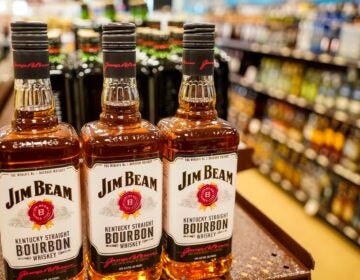Recycling fee replaces bottle bill
Delaware’s 28-year-old bottle bill is being thrown to the curb.
Starting Wednesday, the state’s 5-cent refundable bottle deposit will no longer be charged on soda and beer bottles.
In this video, Gov. Jack Markell talks about the recycling bill last June at the Cherry Island Landfill the day the bill was signed into law.
Delaware’s 28-year-old bottle bill is being thrown to the curb.
Starting Wednesday, the state’s 5-cent refundable bottle deposit will no longer be charged on soda and beer bottles. Instead, those containers will now carry a 4-cent recycling fee, which is not refundable.
The fee, which is scheduled to continue for no more than four years, will fund a new state law aimed at expanding and improving recycling in Delaware.
“The bottle bill definitely diverted material from the landfill, said Bill Miller, an environmental scientist for the Department of Natural Resources and Environmental Control. “But as an efficient means to do so there was certainly room for improvement.”
That “improvement” comes in the form of Delaware’s new universal recycling program, the Delaware recycling bill was signed into law last June by Gov. Jack Markell, which requires all public and private waste haulers to offer household and commercial curbside recycling pickup at least once every other week. On April 1the Delaware Solid Waste Authority will stop providing single-stream curbside recycling service as the build up of the law’s impact continues.
“What this new law established is there’s an opportunity for every household and eventually every business and workplace to have a recycling collection program,” Miller said.
The service will be available to all single-family homes, restaurants and bars by September, 2011; multi-family residences, such as apartment complexes, by January 2013 and commercial businesses by January 2014.
The first step – replacing the refundable nickel deposit with the 4-cent fee – starts December 1.
“It affects those people who actually return their bottles for a refund,” Miller said.
But exactly how many people and bottles that is is unknown. Miller said the old bottle bill did not have a reporting mechanism.
“But if you talk to store owners or distributors they would tell you that the minority of bottles that are sold come back,” Miller said.
One liquor store owner that WHYY talked to said he will not miss the nickel deposit.
“We have no place to put the bottles at all,” said a Wilmington store owner who did not want to be identified. “It is a big hassle.”
Robert Walker, who was getting a refund on some bottles recently at a BJ’s Wholesale Club Liquor Store in Wilmington, said he was also looking forward to the new curbside recycling service.
“It would be easier,” Walker said. “I’m kind of old and lazy. Anything that makes my life a little easier I’ll go for it.”
It’s a plan that has been in the works for many years. Proponents say the measure will help create jobs, extend landfill life, save resources, reduce greenhouse gas emissions and conserve energy.
“It has a number of true environmental and economic benefits,” Miller said. “So we’re going to help foster that in Delaware.”
The transition from the bottle deposit to recycling fee is as follows:
Starting December 1, the 5-cent refundable deposit will be replaced with a 4-cent recycling fee.
Consumers have until January 31, 2011 to collect refunds on bottles for which they paid a deposit prior to December 1, 2010.
Bottles still labeled with the 5-cent deposit may be found on store shelves for a short while after December 1, 2010. However, the store will not charge a deposit on these bottles, nor can customers return them for a refund.
The 4-cent recycling fee is scheduled to end either when the state Recycling Fund collects $22 million or on December 1, 2014, whichever occurs first.
WHYY is your source for fact-based, in-depth journalism and information. As a nonprofit organization, we rely on financial support from readers like you. Please give today.




